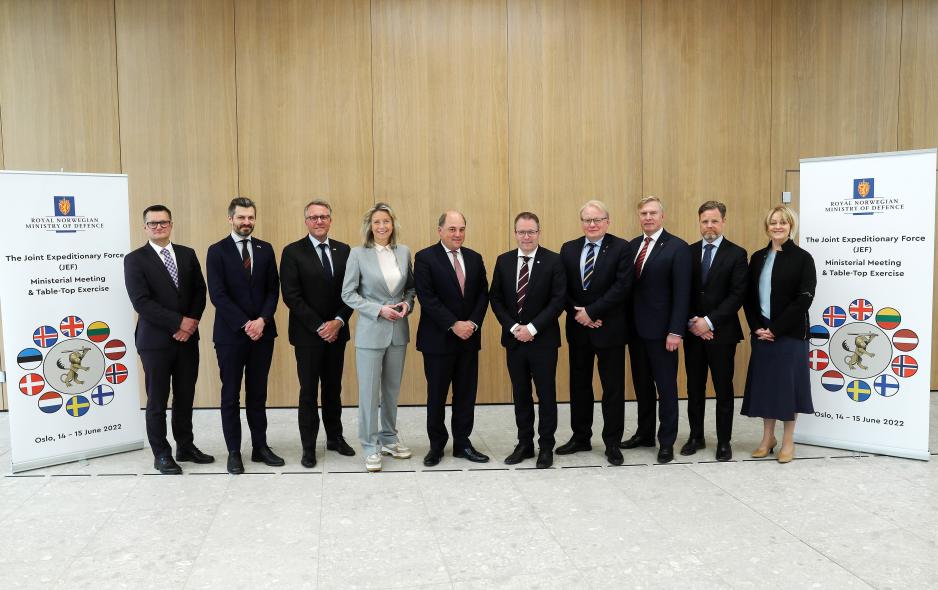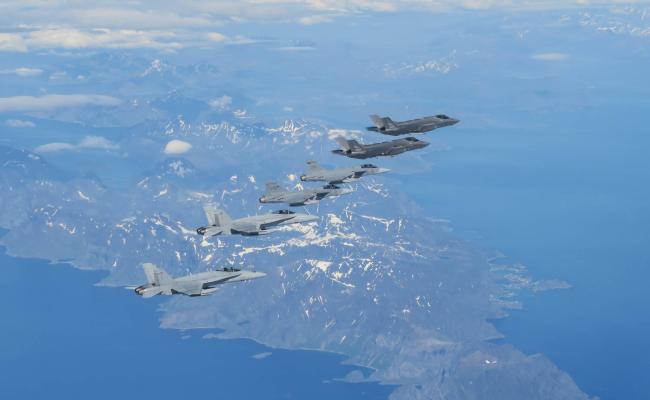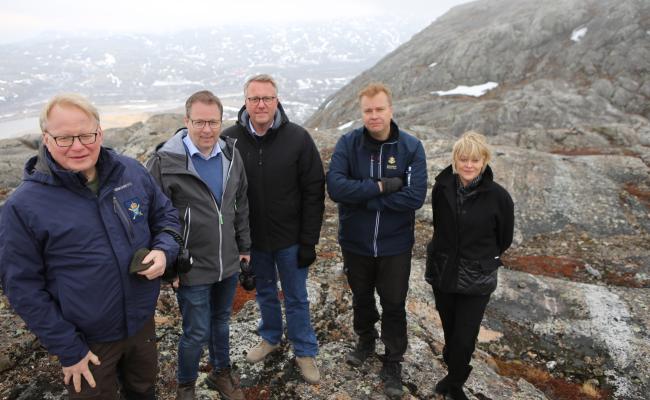Joint Expeditionary Force Countries Practiced Defense-Political Crisis Management

The Joint Expeditionary Force countries’ defense ministers and other leading defense representatives met in Oslo, Norway this week. From the left; Janis Garisons (Latvia), Margris Abukevicius (Lithuania), Morten Bødskov (Denmark), Kajsa Ollongren (the Netherlands), Ben Wallace (Great Britain), Bjørn Arild Gram (Norway), Peter Hultqvist (Sweden), Kalle Laanet (Estonia), Janne Kuusela (Finland), and Bryndis Kjartansdottir (Iceland). (Photo: Torbjørn Kjosvold, Norwegian Armed Forces).
This week, ministers from the JEF states met in Norway to practice how to interact in a crisis situation. “We must be fully ready to act swiftly in case of a crisis or threat against our countries”, says the Danish Minister of Defense.
On Tuesday and Wednesday this week, representatives for the ten countries of the Joint Expeditionary Force (JEF) were gathered in Oslo to discuss North European security issues and practice how to respond if and when a crisis were to occur.
The JEF is a British-led multinational rapid reaction force with the Nordic and the Baltic countries as well as the Netherlands.
“The JEF defense ministers discussed present security challenges, including the implications of the Russian invasion of Ukraine, and assessed the future development of the JEF to ensure its continuing to provide an efficient contribution to security and stability in its core region consisting of the High North, the North Atlantic, and the Baltic Sea”, the defense ministers say in a joint statement after their meeting.
For Norway, the JEF supplements other cooperation formats such as NATO in an early, yet tense situation to get an overview and be able to de-escalate a potentially dangerous development, according to the Armed Forces.
Minister-level training
Last winter and spring, a series of multinational military exercises have taken place in the Nordics, while training about political and military crisis management for defense ministers and lead defense representatives is hardly ever mentioned.
“We must be fully ready to react swiftly and efficiently in case of a crisis or threats against our countries. It is important that we constantly work together with our allied and close partners to strengthen our cooperation, not least in the current security policy situation”, Danish Defense Minister Morten Bødskov (S) says in a press statement.
The goal of the exercise was to practice the rapid reaction force’s handling of an escalating crisis, and that in a way that support NATO’s role.
“We are in the middle of a critical time for European and international security and the coming together and discussing issues of mutual interest, as well as demonstrating unity, is essential” says Norwegian Defense Minister Bjørn Arild Gram (Center Party) in a press statement.
“Both the meeting and the exercise has shown that our countries are capable and willing to work together to face joint security threats and challenges in our region”, Gram adds.
More securing of Finland and Sweden
The Finnish and Swedish NATO applications were also on the agenda of the meeting.
“We will work closely with our NATO allies to integrate both Finland and Sweden into the Alliance as soon as possible”, the ministers state.
The allied JEF countries also say that they will contribute to securing the two candidate countries during the application period through increased multi-domain activity across their core areas and point out that this comes in addition to the formerly planned exercises and operations in Northern Europe.
“The ministers of the other countries expressed strong support for Sweden’s and Finland’s applications to join NATO. They also promised increased presence in the Baltic Sea region while Sweden and Finland await the outcome of their membership applications”, Swedish Defense Minister Peter Hultqvist (S) says in a press statement.
Also read
This article was originally published in Norwegian and has been translated by HNN's Elisabeth Bergquist.



